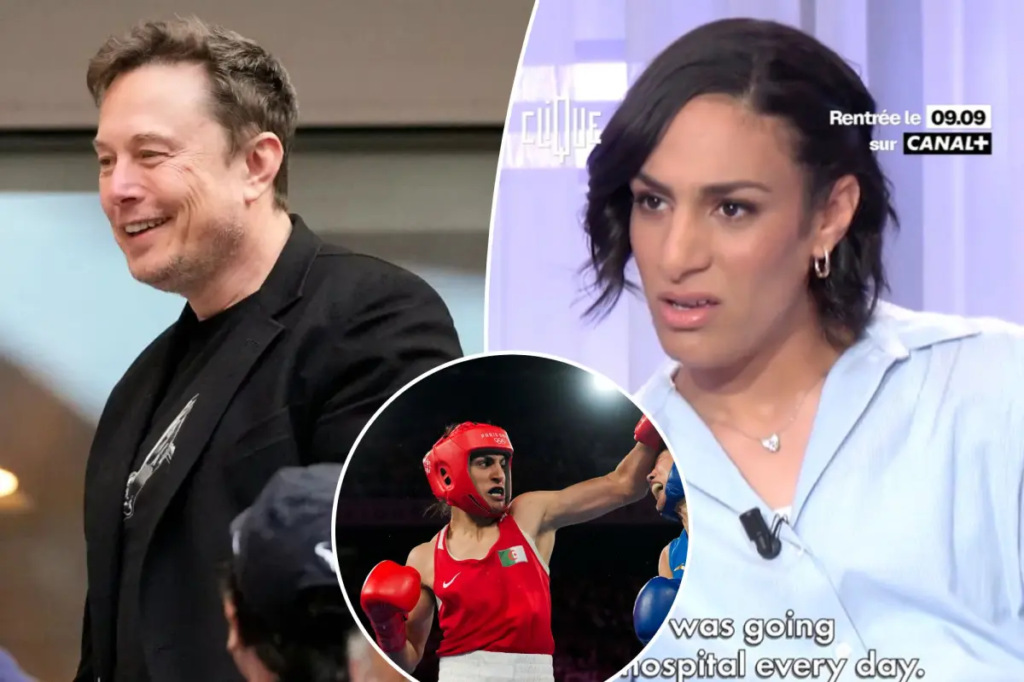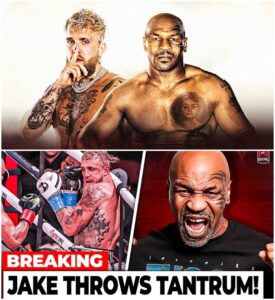Title: Imane Khelif’s Triumph Amidst Controversy: A Gold Medal and a Heated Debate at the Paris Olympics
Imane Khelif, a rising star in women’s boxing, became the focus of a significant gender eligibility controversy during her gold medal-winning performance at the Paris Olympics. The Algerian athlete’s story, marked by both triumph and dispute, has sparked widespread discussion about the regulations surrounding gender eligibility in sports. This issue first came to light when Khelif was disqualified from the 2023 International Boxing Association (IBA) World Boxing Championships for failing an unspecified gender eligibility test, raising questions and debates that carried over to her Olympic run in Paris.
The Rise of Imane Khelif: A Boxing Star in the Making
Khelif’s journey to the top has been nothing short of inspirational. Hailing from Algeria, she quickly gained recognition for her speed, agility, and technical prowess inside the ring. Her rise in the international boxing scene was marked by a series of impressive victories, showcasing her talent and determination. By the time the 2023 IBA World Boxing Championships approached, Khelif was regarded as one of the favorites, poised to make her mark on the world stage.
However, Khelif’s journey took an unexpected turn when she was disqualified from the championships after failing a gender eligibility test. The announcement was met with shock and confusion, both from the athlete herself and the broader boxing community. The IBA did not provide specific details about the nature of the test or the criteria that led to her disqualification, leaving many questions unanswered.

The Controversy Over Gender Eligibility in Sports
Gender eligibility has long been a contentious issue in the world of sports. Governing bodies like the International Olympic Committee (IOC) and the IBA have established guidelines to ensure fair competition, particularly in events divided by gender. These regulations often involve testosterone levels and physical attributes, intended to create a level playing field. However, critics argue that these criteria can be invasive, discriminatory, and based on outdated understandings of sex and gender.
In Khelif’s case, the lack of transparency surrounding her disqualification fueled further speculation and controversy. Was the decision based on testosterone levels, physical examinations, or another factor altogether? Without clear answers, the debate about fairness, discrimination, and privacy only intensified. For many, Khelif’s situation became a symbol of the broader struggles faced by female athletes in a sports world grappling with evolving definitions of gender.
Paris Olympics: A Triumphant Return Amid Scrutiny
Despite her disqualification from the IBA World Championships, Khelif was determined to continue her career and prove herself on the world stage. Her opportunity came at the Paris Olympics, where she was allowed to compete following an appeal and further review of her eligibility. This decision was not without controversy, as some critics argued that allowing her to compete undermined the fairness of the competition.
Nonetheless, Khelif’s performance in Paris was nothing short of spectacular. She displayed exceptional skill, tenacity, and resilience, defeating some of the best boxers in the world to claim the gold medal in her weight class. Her victory was celebrated by many as a triumph over adversity, but it also reignited the debate over gender eligibility and the rules that govern it.
Reactions to Khelif’s Gold Medal Victory
Khelif’s gold medal win was met with mixed reactions. On one hand, she was lauded by her supporters and fans in Algeria and beyond, who saw her success as a powerful statement of resilience and determination. For many, her victory was a celebration of athletic excellence and a testament to her hard work and dedication to the sport.
However, the controversy surrounding her eligibility continued to cast a shadow over her achievement. Some of her competitors and critics argued that her participation was unfair, citing concerns about the integrity of the competition. Others called for more transparency and consistency in the application of gender eligibility rules, urging sports governing bodies to clarify their policies to avoid similar controversies in the future.
The issue also sparked a broader debate about gender and inclusion in sports. Advocates for gender equality and inclusivity argued that the controversy highlighted the need for more nuanced approaches to gender eligibility, ones that recognize the diversity of human bodies and identities. They emphasized that sports should aim to be inclusive and accessible to all athletes, regardless of their gender identity.
The Broader Implications of Khelif’s Case
Khelif’s case has become a flashpoint in the ongoing conversation about gender eligibility in sports. The lack of clarity surrounding the criteria used to determine eligibility has raised important questions about the fairness and consistency of current policies. Some argue that existing rules are too rigid and fail to account for the complexities of sex and gender, while others believe that they are necessary to maintain a level playing field.
This debate has also brought attention to the experiences of female athletes who have faced similar challenges. For years, women in sports have had to navigate a complex landscape of regulations, scrutiny, and stereotypes. Khelif’s situation has highlighted the ways in which these challenges can be compounded by issues of gender identity and expression, forcing sports organizations to reconsider how they define and regulate gender.
The case has also prompted calls for more inclusive and respectful testing procedures. Critics argue that gender eligibility tests can be invasive and humiliating, violating athletes’ rights to privacy and dignity. They advocate for the development of new protocols that balance fairness with respect for athletes’ personal autonomy.
What Lies Ahead for Imane Khelif and Women’s Boxing?
As the dust settles from the Paris Olympics, the future remains uncertain for Imane Khelif and the broader conversation about gender eligibility in sports. For Khelif, her gold medal victory is a testament to her skill and perseverance, but it also serves as a reminder of the ongoing challenges she faces. Her story has become a focal point for discussions about fairness, inclusion, and the rights of athletes.
For women’s boxing and sports in general, the controversy surrounding Khelif has underscored the need for clearer, more equitable policies. Governing bodies like the IBA and IOC will likely face increased pressure to revise their gender eligibility rules and improve transparency in their decision-making processes. The goal will be to create a fair and inclusive environment that respects the rights of all athletes while maintaining the integrity of the competition.
Conclusion: A Catalyst for Change in Sports
Imane Khelif’s journey from disqualification at the 2023 IBA World Boxing Championships to gold medal glory at the Paris Olympics is a story of resilience and determination. However, it is also a story that has brought critical issues to the forefront of the sports world. Her case has sparked an important conversation about gender eligibility, fairness, and inclusion, one that will likely shape the future of sports for years to come.
As sports continue to evolve, Khelif’s story serves as a reminder that the path to true inclusivity and fairness is complex and often fraught with controversy. Yet, it is a path that must be pursued if we are to create a sports world that truly values and respects all athletes, regardless of gender. Imane Khelif may have won gold in Paris, but the real victory will be in the progress made toward a more equitable and inclusive future for all.
































